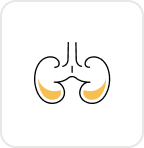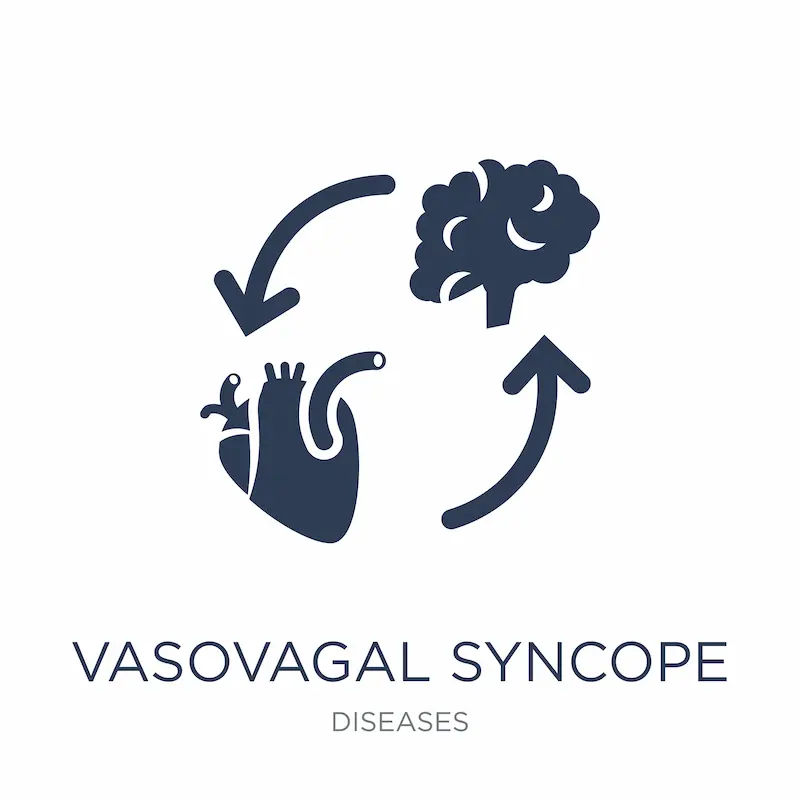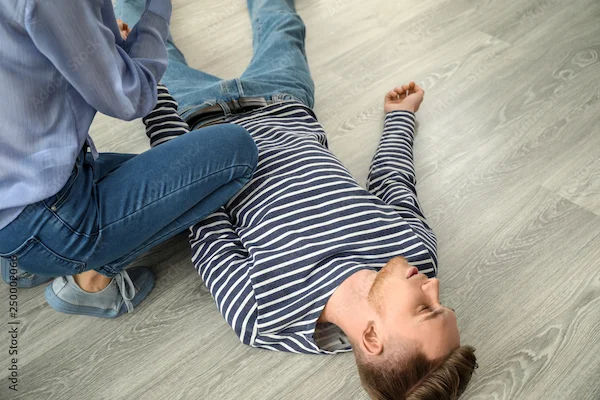Guide to Syncope or Fainting Attacks: Do They Always Need Treatment?
Discover everything about syncope (fainting)—its symptoms, causes, warning signs, diagnosis, and treatment options. Learn first-aid steps, prevention strategies, and when to seek urgent medical care.


Introduction
Have you ever stood up too quickly and felt the room spin? Or witnessed someone suddenly collapse, only to wake up moments later, confused but okay? This sudden, brief loss of consciousness is known as syncope, or more commonly, a fainting attack. While often terrifying to experience or witness, syncope is surprisingly common, affecting up to one in three people at some point in their lives. But the million-dollar question remains: is it a harmless hiccup in your body's rhythm or a warning sign of something more serious? This comprehensive guide will demystify syncope, walking you through its various causes, from the benign to the critical. We'll explore the symptoms to watch for, outline the diagnostic process, and crucially, answer whether a fainting spell always requires medical treatment. Your journey to understanding this common yet complex condition starts here.
What Exactly is a Syncope Episode?
At its core, syncope is a temporary loss of consciousness caused by a sudden drop in blood flow to the brain. It’s your brain’s circuit breaker tripping. When the brain is deprived of oxygen and glucose for even a short period, it shuts down non-essential functions—including consciousness—to protect its vital structures. This results in a loss of muscle control, causing you to fall. The act of falling is, ironically, a protective mechanism; by becoming horizontal, gravity helps restore blood flow to the brain, allowing you to wake up typically within seconds to a minute.
Syncope vs. Other Forms of Altered Consciousness
It's important to distinguish syncope from other events. Unlike a seizure, syncope is not caused by abnormal electrical activity in the brain. Seizures often involve jerking movements, biting the tongue, and a longer post-event period of confusion. Syncope is also different from simply feeling lightheaded or dizzy without actually blacking out—a state known as pre-syncope.
The Immediate Steps: What to Do If Someone Faints
If you see someone faint, follow these steps:
- Catch them if possible and gently lower them to the ground.
- Position them on their back and elevate their legs above heart level (about 12 inches) to promote blood flow back to the brain.
- Loosen any tight clothing around their neck or waist.
- Ensure they have fresh air; make space around them.
- Do not try to sit them up or give them water/food until they are fully alert.
- Most people recover quickly. Once awake, allow them to rest for a few minutes before slowly sitting up.
Consult a Specialist for the best advice
Recognising the Signs: Before, During, and After Syncope
A fainting attack rarely comes completely out of the blue. Recognising the warning signs can sometimes allow you to prevent a full episode.
Pre-Syncope (The Warning Signs)
This is the feeling that you are about to pass out. Symptoms include:
- Lightheadedness or dizziness
- A feeling of being "hot" or suddenly breaking into a cold sweat
- Nausea
- Ringing in the ears (tinnitus)
- Blurred or tunnel vision
- Pale, clammy skin
What Happens During the Fainting Spell
During the episode itself, the person is:
- Unconscious and unresponsive.
- Typically limp (though brief muscle twitches can occur, which are different from seizure activity).
- Often has a weak, slow pulse and low blood pressure.
The Recovery Phase
Upon waking, the person is usually alert within a minute but may feel:
- Confused or disoriented for a short time.
- Fatigued and weak.
- Embarrassed or anxious about what happened.
If confusion lasts more than a minute or two, it could indicate a different problem, like a seizure, and warrants medical attention.
Common Triggers: What Causes a Fainting Attack?
Understanding the causes of sudden fainting is key to management. The three main categories are:
Reflex Syncope (Vasovagal Syncope): The Most Common Culprit
This is the classic fainting spell. It involves an overreaction of the vagus nerve, which helps regulate heart rate and blood pressure. Common vasovagal syncope triggers include:
- Emotional stress: Fear, pain, the sight of blood.
- Physical triggers: Standing for long periods, dehydration, intense heat.
- Situational triggers: Straining (e.g., during a bowel movement), coughing forcefully, or even laughing too hard.
Orthostatic Hypotension: A Drop in Blood Pressure
This occurs when blood pressure drops significantly upon standing up. Causes include:
- Dehydration: From not drinking enough fluids, vomiting, or diarrhea.
- Medications: Diuretics, blood pressure pills, and some antidepressants.
- Neurological conditions: Like Parkinson's disease.
- Prolonged bed rest.
Cardiac Syncope: The Most Serious Cause
This type is due to an underlying heart problem that disrupts the heart's ability to pump blood effectively. It is less common but more dangerous. Heart problems that cause fainting include:
- Arrhythmias: An abnormally fast (tachycardia) or slow (bradycardia) heart rate.
- Structural heart problems: Valve disorders, heart failure, or heart attack.
Unique Insight: Many people don't realise that dehydration is a primary amplifier for almost all types of syncope. It reduces overall blood volume, making the body far more susceptible to the blood pressure drops that trigger both reflex and orthostatic syncope. Prioritising hydration is one of the simplest yet most effective preventive measures.
How Doctors Diagnose the Root Cause of Syncope
Diagnosis begins with a detailed account of the event. If your condition does not improve after trying hydration and rest, consult a doctor online with Apollo24|7 for further evaluation.
The Importance of a Detailed Patient History
A doctor will ask: What were you doing? Did you have warning signs? Did anyone witness it? What was your recovery like? Your medical history and a list of your medications are also crucial.
Key Diagnostic Tests for Unexplained Fainting
- Electrocardiogram (ECG/EKG): Checks the heart's electrical activity for irregularities.
- Echocardiogram: An ultrasound of the heart to check its structure and function.
- Holter Monitor or Event Monitor: A portable ECG worn for days or weeks to catch intermittent rhythm problems.
- Tilt Table Test: For suspected reflex syncope, you are strapped to a table that tilts upright, simulating standing to see if it triggers symptoms.
- Blood Tests: To check for anemia, electrolyte imbalances, or other issues. Apollo24|7 offers a convenient home collection for tests like these.
Get Your Health Assessed
Does Syncope Always Need Treatment?
This is the central question. The answer is: It depends entirely on the cause.
When Fainting is Benign and Requires Minimal Intervention
A single, isolated episode of vasovagal syncope with a clear, harmless trigger (like a needle stick or extreme emotion) often does not require specific medical treatment. The focus is on prevention and awareness.
Signs Your Syncope Needs Medical Treatment
You should seek immediate medical care if fainting is accompanied by:
- Chest pain or palpitations before fainting.
- Fainting during exercise or while lying down.
- A family history of sudden cardiac death or unexplained fainting.
- No warning signs whatsoever.
- Recurrent episodes in a short period.
- Pre-existing heart disease.
Treatment Options Based on the Underlying Cause
- Reflex Syncope: Education, avoiding triggers, and physical counter-pressure maneuvers (e.g., crossing legs and tensing muscles when feeling faint).
- Orthostatic Hypotension: Increasing fluid and salt intake (as advised by a doctor), compression stockings, and reviewing medications.
- Cardiac Syncope: This always requires treatment, which may include medications, a pacemaker, an implantable cardioverter-defibrillator (ICD), or procedures to correct an arrhythmia or structural issue.
Prevention Strategies: How to Stop a Fainting Spell Before It Starts
For non-cardiac causes, preventing fainting spells is often about lifestyle management.
Lifestyle Modifications for Vasovagal Syncope
- Hydrate, Hydrate, Hydrate: Drink plenty of fluids throughout the day.
- Avoid Triggers: Learn your personal triggers and try to avoid them.
- Slow Movements: Don't jump out of bed or a chair. Sit on the edge first before standing.
- Isometric Exercises: Clenching your fists or crossing your legs can help raise blood pressure when you feel pre-syncope.
Managing Orthostatic Hypotension Day-to-Day
- Increase Salt Intake: Only if your doctor approves.
- Wear Compression Stockings: They prevent blood from pooling in your legs.
- Eat Small, Frequent Meals: Large meals can divert blood to the gut and drop pressure.
Conclusion
Syncope, or fainting, is a dramatic event that can range from a simple, one-off physiological response to a critical warning sign from your body. The key to navigating it is understanding. By learning to recognise the different types—from the common vasovagal reaction to the more serious cardiac origins—you empower yourself to respond appropriately. While not every fainting spell necessitates alarm, ignoring recurrent episodes or those with red-flag symptoms can be dangerous. Listen to your body. Prioritise hydration, be mindful of your triggers, and never hesitate to seek professional medical advice to get a clear diagnosis. If you've experienced an unexplained fainting attack, booking a consultation with a cardiologist or neurologist through a platform like Apollo24|7 can provide the clarity and peace of mind you deserve. Your health is worth that extra step.
Consult a Specialist for the best advice
Consult a Specialist for the best advice

Dr. Neeraj Jain
Neurologist
18 Years • MBBS, MD(Medicine), DNB(Medicine), DM(Neurology), DNB(Neurology),
Mumbai
Apollo Hospitals CBD Belapur, Mumbai
(25+ Patients)

Dr. Avinash Gupta
Neurologist
12 Years • MBBS, DNB - Neurology
Bilaspur
Apollo Hospitals Seepat Road, Bilaspur
(150+ Patients)

Dr. Rajendran S
Neurologist
30 Years • MD, DM (Neuro), MRCP (Irel&), MSc (Neuro)
Chennai
Apollo Hospitals Greams Road, Chennai
(150+ Patients)

Dr. Uddalak Chakraborty
Neurologist
8 Years • MBBS, MD(GENL.MED.),DM(NEUROLOGY)
Kolkata
MCR SUPER SPECIALITY POLY CLINIC & PATHOLOGY, Kolkata

Dr. E Prabhakar Sastry
General Physician/ Internal Medicine Specialist
40 Years • MD(Internal Medicine)
Manikonda Jagir
Apollo Clinic, Manikonda, Manikonda Jagir
(150+ Patients)
Consult a Specialist for the best advice

Dr. Neeraj Jain
Neurologist
18 Years • MBBS, MD(Medicine), DNB(Medicine), DM(Neurology), DNB(Neurology),
Mumbai
Apollo Hospitals CBD Belapur, Mumbai
(25+ Patients)

Dr. Avinash Gupta
Neurologist
12 Years • MBBS, DNB - Neurology
Bilaspur
Apollo Hospitals Seepat Road, Bilaspur
(150+ Patients)

Dr. Rajendran S
Neurologist
30 Years • MD, DM (Neuro), MRCP (Irel&), MSc (Neuro)
Chennai
Apollo Hospitals Greams Road, Chennai
(150+ Patients)

Dr. Uddalak Chakraborty
Neurologist
8 Years • MBBS, MD(GENL.MED.),DM(NEUROLOGY)
Kolkata
MCR SUPER SPECIALITY POLY CLINIC & PATHOLOGY, Kolkata

Dr. E Prabhakar Sastry
General Physician/ Internal Medicine Specialist
40 Years • MD(Internal Medicine)
Manikonda Jagir
Apollo Clinic, Manikonda, Manikonda Jagir
(150+ Patients)
More articles from Syncope
Frequently Asked Questions
What is the difference between fainting and a seizure?
Syncope (fainting) is caused by a brief drop in blood flow to the brain, leading to a sudden loss of consciousness and muscle tone. Recovery is usually quick. A seizure is caused by abnormal electrical activity in the brain and often involves jerking movements, loss of bladder control, biting the tongue, and a longer period of confusion (post-ictal state) after the event.
Can dehydration alone cause you to faint?
Absolutely. Dehydration reduces your blood volume, which makes it harder for your body to maintain adequate blood pressure, especially when you stand up. This can directly lead to orthostatic hypotension or make you more susceptible to a vasovagal syncope episode.
Should I go to the ER after fainting?
If it's your first time, you fainted without any warning, you injured yourself during the fall, or you have underlying heart conditions, it's wise to get checked out immediately. For a simple faint with a clear trigger and quick recovery, you may not need the ER, but you should still follow up with your primary care doctor.
How can I tell if my fainting is heart-related?
Cardiac syncope is more suspect if fainting occurs during physical exertion, while lying down, or is accompanied by chest pain, palpitations, or a racing heart. A family history of sudden cardiac death is also a major red flag. These symptoms always require prompt medical evaluation.
What are physical counter-pressure maneuvers?
These are techniques to raise your blood pressure when you feel faint. The most common is tensing the muscles in your arms, legs, and abdomen. For example, you can cross your legs and tense them, or grip one hand with the other and pull apart while tensing your arms. This can often abort an episode.






